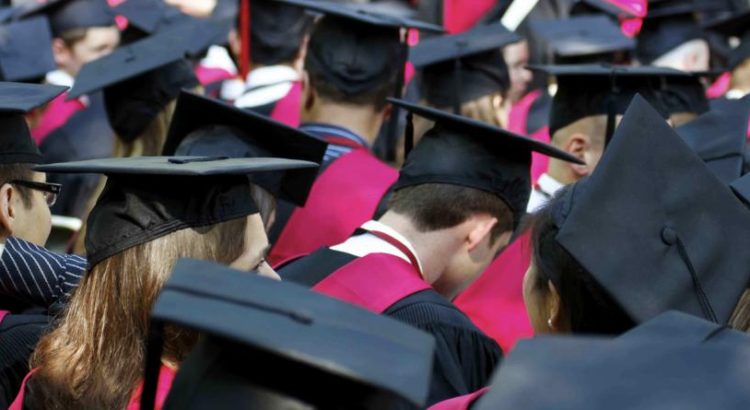RedEducativaMundial(REDEM)/Por: El Confidencial.com / Héctor G. Barnés
Según James Atlas, son “súper personas”. Según el profesor William Deresiewicz, son niños mimados que sólo conocen el éxito, lo que termina por deprimirlos.
Los nuevos licenciados son perfectos… para las empresas que los contratarán. Son “súper personas”, el nombre que les dio James Atlas, editor de The New York Times Magazine y presidente de Altas & Company. Tienen varias carreras, practican deporte como si fuesen profesionales, pueden hablar en varios idiomas, manejan a la perfección un instrumento musical, han ofrecido ayuda en los rincones más desfavorecidos del planeta, y han convertido sus hobbies en una provechosa afición. Han estudiado en las grandes universidades, y el futuro está en sus manos. Tiene que estarlo, con tan brillante currículum. Pero también están llenos de miedo, inseguridad, angustia y timidez. Apenas muestran preocupaciones intelectuales y desconocen qué quieren hacer con su vida, más allá de ganar dinero a espuertas, seguir el camino que profesores y padres han construido para ellos, y conseguir la aprobación de los demás.
Esta es la paradoja que late en la vida de los universitarios de los centros de élite americanos, mantiene el profesor de Yale William Deresiewicz, que ha expuesto su tesis en un ya célebre artículo publicado en The New Republic y en su libro Borregos excelentes: la mala educación de la élite americana y el camino a una vida plena, publicado por Free Press. Deresiewicz ha comprobado con sus propios ojos y ha vivido en su propia piel la frustrante experiencia del estudiante de Harvard, Yale o el resto de centros de la Ivy League, que los convierte en esos “borregos excelentes” del título: “Son excelentes porque cumplen todos los requisitos para entrar en una facultad de la élite, pero es una excelencia muy limitada.Son chicos que cumplirán todo aquello que les mandes, y que lo harán sin saber muy bien por qué lo hacen. Sólo saben que volverán a pasar por el aro”. No se trata de un nombre inventando por el escritor. Al contrario, fue el concepto con el que uno de sus alumnos se describió a sí mismo.
Ganado para alimentar la máquina
Desde los años 60, asegura Deresiewicz, los valores que rigen los grandes centros educativos han cambiado por completo aunque, en apariencia, sigan defendiendo la excelencia y el auxilio de los más desfavorecidos. “Auto exaltación, estar a servicio nada más que de ti mismo, una buena vida pensada sólo en términos del éxito convencional(riqueza y estatus) y ningún compromiso real con el aprendizaje, el pensamiento, y con convertir el mundo en un mejor lugar” son los valores que, según el profesor, rigen el comportamiento de sus alumnos. Pero ellos no son los culpables, sino las víctimas. Entre la larga lista de responsables, Deresiewicz señala a los institutos privados, a los ambiciosos padres, al sistema de admisión, a las grandes marcas universitarias, a los empleos donde estos serán contratados y, en general, a la mentalidad de clase media-alta.
Cada vez que ven que la luz roja se enciende, tienen que pulsan el botón, pero hay un momento en el que dejan de decirles lo que tienen que hacer
El producto –es decir, los nuevos licenciados– parece perfecto. Pero, debajo de esa imagen homérica y dinámica del que algún día se convertirá en CEO de una gran empresa se encuentra latente una gran inseguridad. Esta se caracteriza, sobre todo, por una enfermiza aversión al riesgo. “Por definición, nunca han experimentado algo que no sea el éxito”, explica Deresiewicz. Y está en lo cierto. Los requisitos académicos y personales para ser admitido en cualquiera de estos centros son tan elevados que conseguir menos que un sobresaliente no es una opción. Por ello, “al no tener margen para el error, evitan los posibilidad de cometerlo”. Uno de sus alumnos miró a su profesor como si fuese un alienígena cuando le sugirió que quizá dedicar menos tiempo para el estudio le serviría para reflexionar sobre lo que ha aprendido. Otro manifestaba sentirse completamente inseguro ante la posibilidad de verse obligado algún día a comer solo.
Algo que se refleja en las estadísticas de salud mental de los estudiantes, que se encuentran en su momento más bajo de los últimos 25 años. “Es casi como un experimento cruel con animales”, explica en una entrevista con The Atlantic. “Cada vez que ven que la luz roja se enciende, tienen que pulsar el botón”. Entre todos esos requisitos se encuentran la música o participar en una organización caritativa, algo que Deresiewicz explica que no hacen para los demás, sino para sí mismos y sus currículos. “La experiencia ha sido reducida a su función instrumental”. Por ello, durante cuatro años, los que aspiran a matricularse en una gran universidad se dedican exclusivamente a tachar de su lista todos esos hitos que deben haber alcanzado, pero nunca llegan a reflexionar sobre si realmente desean ser ricos y poderosos.
El terrible mundo real
Una vez llegan a la universidad, esta no plantea ningún problema. No tienen más que seguir el camino preestablecido y todo irá bien. Además, los cursos no son muy exigentes, recuerda Deresiewicz. Se ha llegado a un “pacto de no agresión” entre profesores y estudiantes, por el cual los alumnos son “clientes” que reciben altas calificaciones a cambio de un esfuerzo mínimo. Mientras tanto, los profesores siguen profundizando en sus proyectos de investigación, lo que realmente garantiza que reciban incentivos económicos.
Es después de abandonar los estudios cuando la realidad se presenta amenazadora. “Por supuesto que están estresados”, recuerda el profesor. “Nunca han tenido la posibilidad de encontrar su propio camino. El problema es que hay un momento en el que dejan de decirles qué tienen que hacer”.Delirios de grandeza y depresión son dos de los grandes problemas a los que tienen que enfrentarse. El primero, ocasionado por el hecho de que sus padres les hayan dicho que son los mejores y los más listos desde su infancia, un refuerzo positivo que desaparece en el momento en que se dan cuenta de que, como decía David McCullough, no son especiales. Han dejado de medir su valía de forma realista, lo que provoca que su autoestima se desmorone a la primera de cambio.
Wall Street se dio cuenta de que las facultades están produciendo licenciados muy listos y completamente centrados en el trabajo, que no tienen ni idea de lo que quieren
Irónicamente, las personas que tendrían la posibilidad de hacer todo lo que quisieran, terminan siguiendo carreras muy similares. Que son justo aquellas en las que son necesarios trabajadores y líderes que sigan caminos preestablecidos, que se muevan únicamente por las ansias de dinero, estatus e influencia, y que no cuestionen el estado de las cosas. Es el caso de la bolsa americana. Como señala una cita del periodista deNewseek Ezra Klein que reproduce Deresiewicz, “Wall Street se dio cuenta de que las facultades están produciendo una gran cantidad de licenciados muy listos y completamente centrados en el trabajo, que tienen una gran resistencia mental, una buena ética de trabajo y ni idea de lo que quieren”.
En última instancia, recuerda el autor, se trata de lucha de clases. Pero no entre las clases bajas y las altas, sino entre los diversos escalones de las élites, a los que cualquier otro camino les parece una excentricidad. Como recuerda el periodista, el número de estudiantes de la mitad menos rica de la sociedad se ha reducido en la educación de élite desde el 46% de 1985 al 15% actual. Y como explicaba el fundador del Proyecto Minerva Ben Nelson, los habituales métodos de selección de los estudiantes de las universidades de élite no hacen nada más que dar preferencia a los más ricos, puesto que ellos son los que tienen el dinero para contratar a los mejores profesores y enrolar a sus hijos en las clases de música, fútbol americano, matemáticas, francés, béisbol, viajes al extranjero, economía y literatura que necesitan para garantizarse su puesto en la élite.
Fuente: http://www.redem.org/la-educacion-de-elite-produce-borregos-excelentes-segun-un-profesor-de-yale-leer-mas-la-educacion-de-elite-produce-borregos-excelentes-segun-un-profesor-de-yale/












 Users Today : 34
Users Today : 34 Total Users : 35460337
Total Users : 35460337 Views Today : 50
Views Today : 50 Total views : 3419078
Total views : 3419078